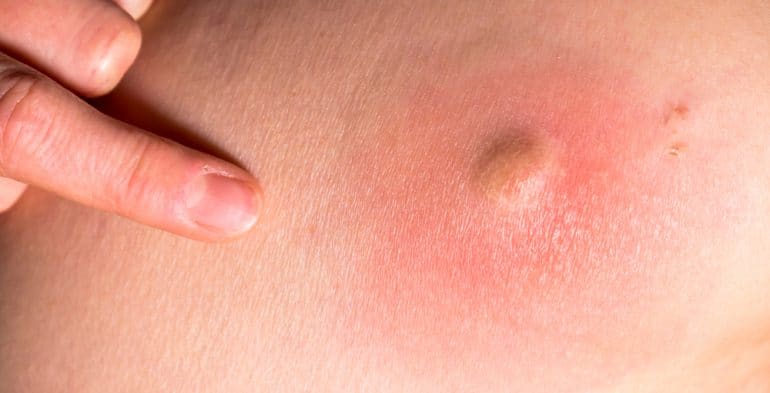
An abscess, or boil, is a build-up of infected liquid, called pus, under the skin. It usually makes the skin looks red and swollen, and it feels warm and tender to touch. If your child has an abscess that doesn’t burst and drain by itself, you should take your child to see your doctor.
Causes of abscesses or boils
An abscess or boil is caused by infection. The most common infection is caused by a bacteria called Staphylococcus aureus, which invades the skin and may go deeper into the tissue if not treated.
The body tries to stop the infection from spreading, so it collects bacteria, white blood cells and dead tissue in one spot. This helps to localize the infection and causes the boil or abscess.
Children can get an abscess if they a cut or an abrasion that has dirt or germs in it.
Children are more likely to get boils if they have conditions like diabetes and obesity or low immunity after a transplant.
Symptoms of an abscess or a boil
Abscesses or boils can develop in any part of the body, but are more common on the face or in areas that are harder to clean like the groin.
At first, you might notice a tender, red lump. The lump might get larger, redder and more painful as pus starts to build up.
After several days, the abscess comes to a head. It will either burst naturally or need to be lanced and drained by your doctor under sterile conditions. After the abscess has opened, it won’t be as painful and should start to heal quickly.
Sometimes your child might get tender and swollen lymph glands near the boil. They might get a fever too.
When to see your doctor about an abscess or a boil
Never try squeezing the abscess at home as it can be extremely painful for your child. It can also spread infection to other parts of the body, including the bloodstream. Instead you should always get a doctor to lance or drain an abscess if it does not heal naturally.
Your doctor will also take a swab of the pus to try to work out what germ has caused it.
Treatment for abscesses or boils
Your doctor might prescribe antibiotics, depending on the severity of the abscess and the swab results, or if the doctor thinks bacteria might have spread into your child’s bloodstream. This can be very serious and may lead to septicemia.
It’s important to wash your hands if you touch an abscess because the pus is infectious.







